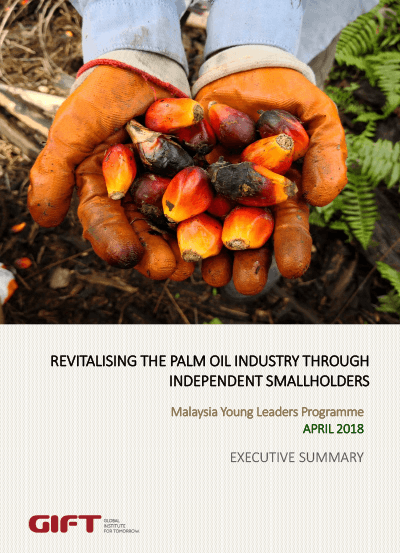Palm oil is one of the world’s most consumed and versatile oils, with 40% of global production grown by smallholders. In Malaysia, independent smallholders, farmers with less than 40 hectares, make up almost 17% of total oil palm cultivation, yet face challenges such as limited market access, reliance on middlemen, lack of sustainable farming knowledge, and pressure to meet certification standards.
Unlike schemed smallholders supported by corporate or government programmes, independent smallholders are self-managed and self-financed. Many struggle with price volatility, low yields, and limited connections with mills or corporate buyers, while global demand for palm oil also raises environmental and social concerns. Certification initiatives like RSPO present further challenges for smallholders due to resource constraints.
The Independent Smallholders Palm Revitalisation Organisation (isPRO) proposes an inclusive business model to strengthen smallholders’ position in the value chain. Key functions include:
- Clustering smallholders for more efficient service delivery
- Facilitating FFB trading between clusters and buyers for fair pricing
- Conducting a Sustainable Outgrower Programme (SOP) to match clusters with buyers, provide contract drafting, and ensure transparent terms, with buyers offering technical support and funding
- Connecting farmers with plantation management service providers to increase options and match supply with demand
- Developing a mobile platform that provides instant services and real-time market data
A five-year pilot in Perak aims to cover 35% of independent smallholder land. With RM3 million in seed funding, isPRO expects profitability by Year 2 and an estimated RM9.7 million over five years, with 30% of profits allocated to the Social Development Fund to support capacity building, research, and community initiatives.
Through this model, isPRO seeks to improve livelihoods, enhance productivity and sustainability, and create a more transparent and resilient palm oil sector in Malaysia.


